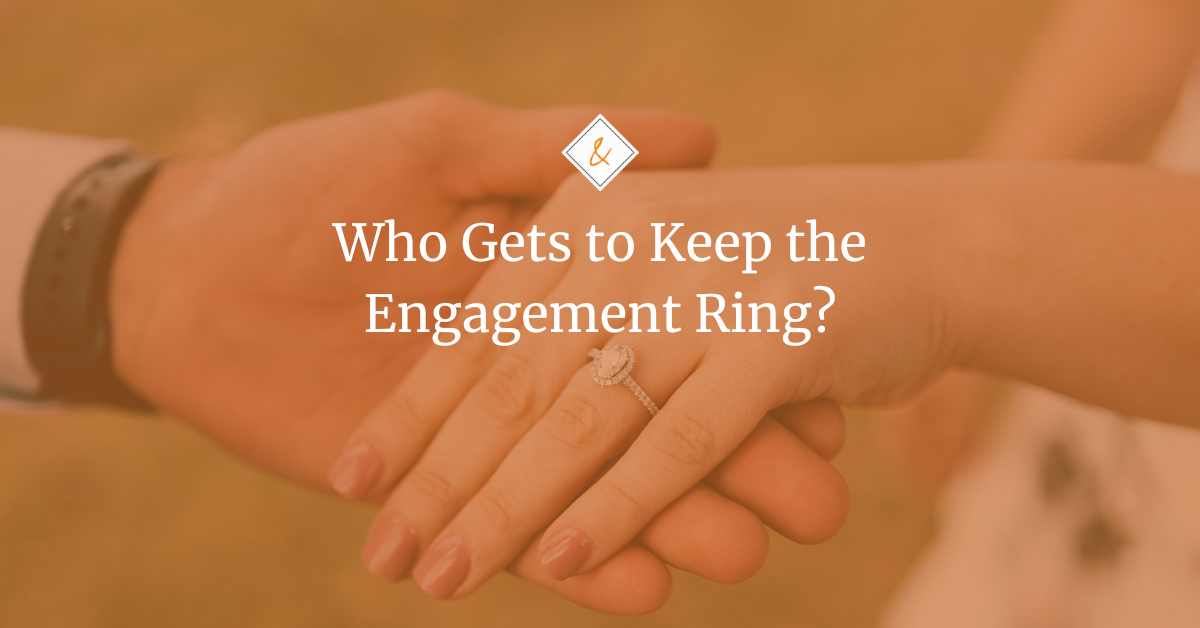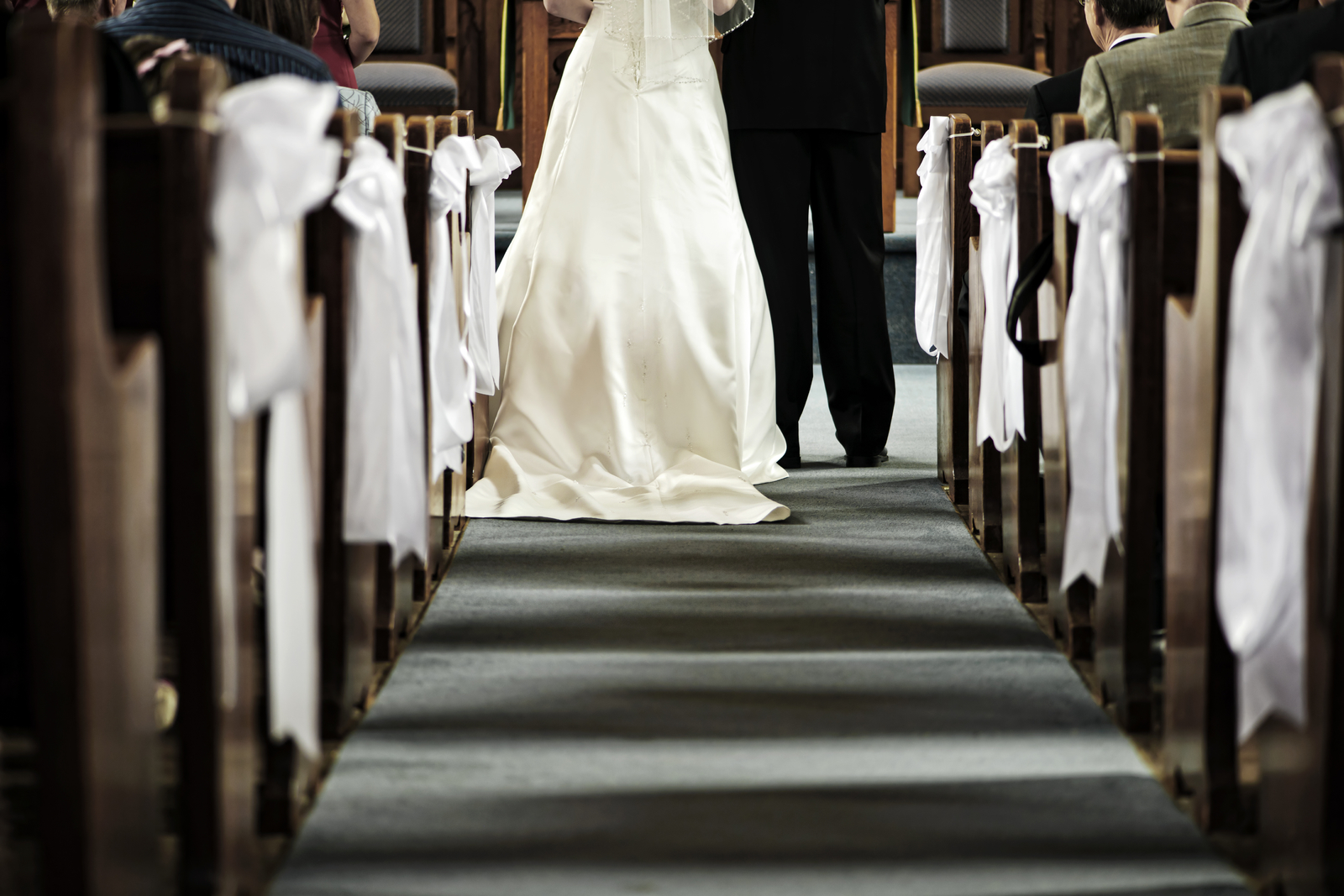You love wearing that sparkly eye-catching rock on your finger, but what happens if your intended beloved (or you) decides that you don’t want to go through with the wedding and one of you calls off the wedding, cancels the band and returns the dress? Do you have to give the ring back? It’s bad enough that your guy tells you he is just not in love with you, but to add insult to injury, he wants the ring back. Under Pennsylvania law, since 1999, the answer was clear if the parties had not yet gotten married. The Pennsylvania Supreme Court, in Lindh v. Surman, 742 A.2d 643 (Pa. 1999), ruled that an engagement ring is a conditional gift given in contemplation of marriage and if the marriage ceremony does not take place, the ring must be returned to the donor. It does not matter that the donor broke the engagement, the reasons why or whose fault it is.
However, recently, in Campbell v Tang, ___.A.3d ___, 2023 Pa. Super. 124 (July 13, 2023), the Pennsylvania Superior Court held that a person whose prior marriage has not been dissolved by divorce or death is incapable of marrying someone else (i.e. proposing a contract to marry another person). Therefore, provided the party proposing marriage misrepresented himself as divorced, the purported engagement is void ab initio, and any gift given in contemplation of the engagement is an unconditional gift that the recipient is not required to return. In Campbell, Robert and Jian had met on the dating website Match.com in 2016. In his Match.com profile, Robert had indicated he was divorced. The couple began dating and moved in together a few months later. In March 2017, Robert proposed to Jian and gave her a diamond ring, together with a matching diamond pendant necklace and matching diamond earrings. The couple set a wedding date for May 12, 2018. Robert wanted Jian to sign a prenuptial agreement prior to the wedding. Jian retained an attorney to represent her in connection with the prenuptial agreement. One week before the wedding, Jian’s attorney discovered that Robert had never divorced his first wife and was still married. Not surprisingly, Jian ended the engagement, moved out of their shared residence, and kept the ring, necklace and earrings.
In July 2018, Robert sued Jian for replevin, unjust enrichment and conversion, seeking the return of the ring, necklace and earrings. Jian filed a counter-claim for fraud, unjust enrichment and conversion. At trial, Robert admitted that he falsely represented that he was divorced on his Match.com profile and admitted that he did not tell Jian that he was still married because, “it was a personal thing” and he “didn’t think it was that important…..” Robert explained that he and his first wife did not divorce so that she could continue to receive health care benefits and so that he could claim additional tax deductions. Robert further testified that he did not tell Jian that he was still married before he proposed to her and admitted he could not have legally applied for a marriage license to marry Jian since he was not divorced. Jian testified that she did not find out that Robert was married until her attorney discovered this a week before the wedding. The trial court entered a ruling in favor of Jian such that she did not have to return the ring and other jewelry.
Robert appealed the decision to the Pennsylvania Superior Court. However, he did not clearly set forth the statement of questions involved on appeal. He had plead causes of action for replevin, unjust enrichment and conversion in his Complaint, but in his statement of issues raised on appeal, he argued that he was entitled to the return of the ring and other jewelry pursuant to established case law regarding engagement gifts. Therefore, the Superior Court found he had waived any arguments regarding the specific causes of action raised in his Complaint. [Accordingly, this case can be viewed as limited to its specific facts, as the Court did not rule on the specific causes of action raised.] The Superior Court held that because Robert was married at the time he proposed to Jian, there was an impediment to his getting married and therefore did not have the capacity to contract to marry, thereby making the conditional gift analysis in Lindh inapplicable. The Superior Court adopted the reasoning of the trial court stating, “The lack of a finalized divorce decree was a legal impediment to the contract to marry from its inception, therefore, making the intended contract to marry void. Since the contract to marry was incapable of ever being fulfilled, the Pennsylvania law put forth by [Robert] is inapplicable to this case …[T]herefor[,] any gifts provided by [Robert] to [Jian] would be gratuitous in nature and are not considered gifts in contemplation of marriage.”
What if things ultimately work out between you and your intended and you get married? You live happily for a few years but ultimately wind up separating and getting a divorce. Now, who gets to keep the ring? The answer hinges on the definition of marital property and is not as clear. In Pennsylvania, marital property consists of all property acquired during the marriage and the increase in value of property owned prior to the marriage (measured from the date of marriage to the date of separation). On the one hand, one could argue that since the ring was given to the donee prior to the marriage it constitutes the donee’s prenuptial property and only the increase in value of the ring, if any, from the date of marriage to the date of separation is subject to distribution between the parties. On the other hand, one could argue that the engagement ring was given as a conditional gift and the gift was not completed until the parties were married. Therefore the engagement ring was not really acquired until the parties were married, making the ring a marital asset.
Arguments may be advocated by counsel on either side of the issue. If you have questions about the treatment of an engagement ring, you should consult with legal counsel.



